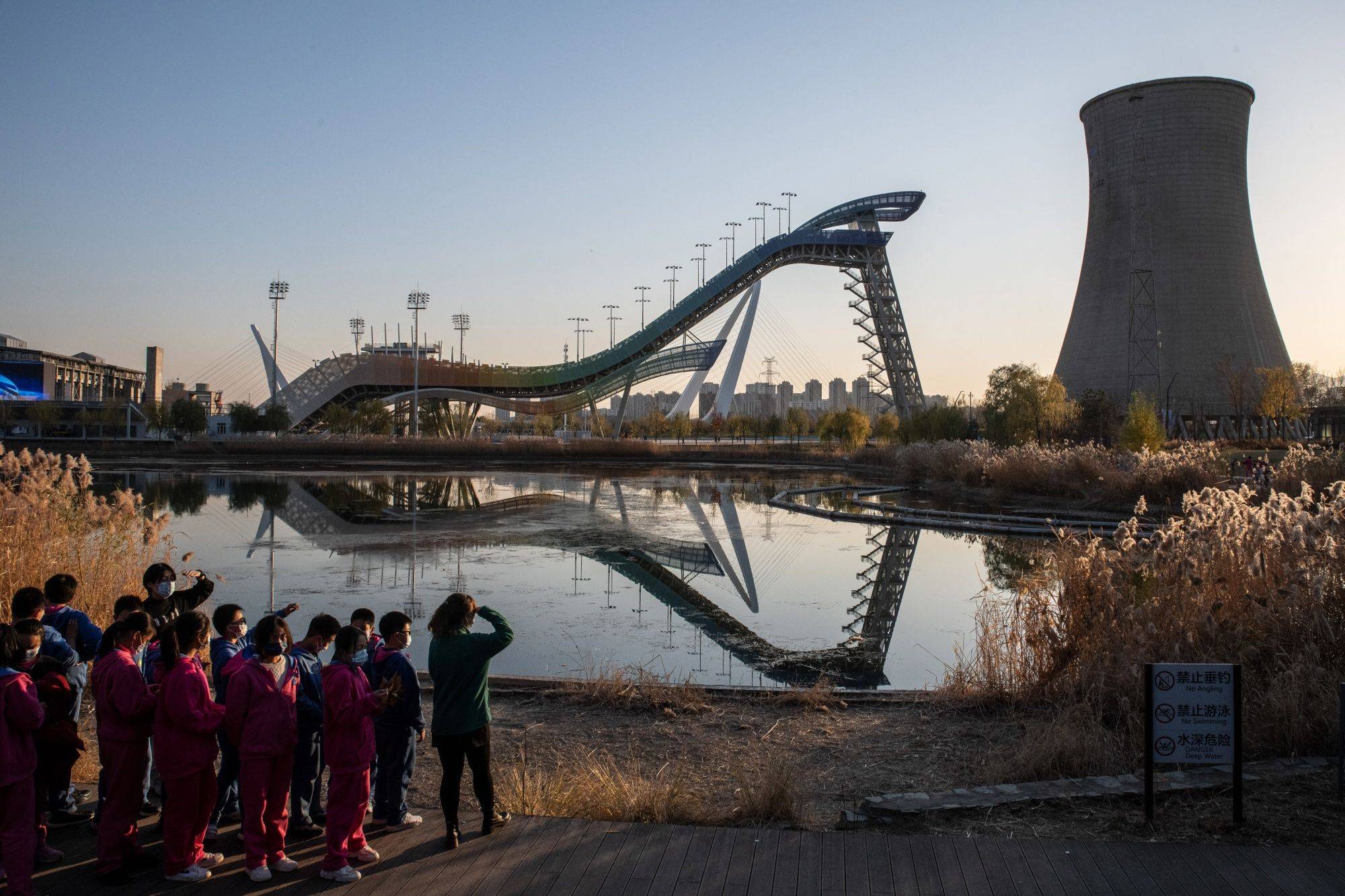About 20 kilometers west of Beijing’s historic Forbidden City sits a rare success story in urban revitalization.
Shougang Park spreads out over more than 8 square kilometers on the Yongding River, on the site of a massive steel factory that first opened in 1919 to smelt iron ore from the nearby Longyan mine. Once the most advanced mill in China and a key contributor to urban smog, the Shougang complex was relocated by the government after Beijing won the rights to host the 2008 Summer Olympics, as part of a wider effort to help clear the city’s skies. It sat idle until 2015, when Beijing was chosen to host the 2022 Winter Olympics, becoming the first city to host both the Summer and Winter Games. The city government parlayed that victory into a massive redevelopment plan for the area, which would seek to preserve and highlight its industrial past instead of bulldozing over it.
Today, one of the mill’s blast furnaces serves as a visitor center: A former line worker, dressed nattily in a blue suit, gives tours and explains the steel-making process. A former cooling pond acts as a reflecting pool for a nearby hilltop temple. Old warehouses are home to a mixed-use development that features restaurants, car dealerships and hair salons, as well as offices for more than 200 companies. A coal power plant has been converted into a Shangri-La hotel, replete with a champagne bar, restaurants and a lobby filled with plants and standing water. Between the complex’s hulking industrial towers, sunsets gleam orange.

















With your current subscription plan you can comment on stories. However, before writing your first comment, please create a display name in the Profile section of your subscriber account page.